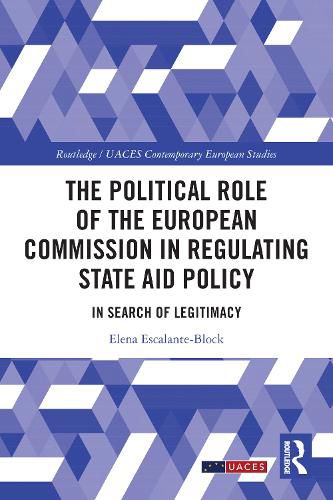Readings Newsletter
Become a Readings Member to make your shopping experience even easier.
Sign in or sign up for free!
You’re not far away from qualifying for FREE standard shipping within Australia
You’ve qualified for FREE standard shipping within Australia
The cart is loading…






This book delves into questions of whether the European Commission is effectively regulating large corporations in Europe, and the public perceptions of the legitimacy of its decisions, by examining state aid cases and when and how actors choose to politicise or depoliticise them.
The book analyses how these corporations get away with certain anti-competitive behaviours and whether the European Commission is achieving something positive with its state aid cases in this regard. It also asks whether the role of the European Commission in regulating anti-competitive behaviour is perceived as legitimate by different political actors in the media. By uncovering how politicisation and depoliticisation can both positively and negatively shape the EU's legitimacy, this book brings clarity to debates about the evolving role of the European Commission in an era of increased political contestation.
This book is of key interest to scholars and students of European Union politics/policy, European politics, comparative politics, public policy, political communication, global business law and regulation, sociology, public policy and law, and International Political Economy.
$9.00 standard shipping within Australia
FREE standard shipping within Australia for orders over $100.00
Express & International shipping calculated at checkout
This book delves into questions of whether the European Commission is effectively regulating large corporations in Europe, and the public perceptions of the legitimacy of its decisions, by examining state aid cases and when and how actors choose to politicise or depoliticise them.
The book analyses how these corporations get away with certain anti-competitive behaviours and whether the European Commission is achieving something positive with its state aid cases in this regard. It also asks whether the role of the European Commission in regulating anti-competitive behaviour is perceived as legitimate by different political actors in the media. By uncovering how politicisation and depoliticisation can both positively and negatively shape the EU's legitimacy, this book brings clarity to debates about the evolving role of the European Commission in an era of increased political contestation.
This book is of key interest to scholars and students of European Union politics/policy, European politics, comparative politics, public policy, political communication, global business law and regulation, sociology, public policy and law, and International Political Economy.